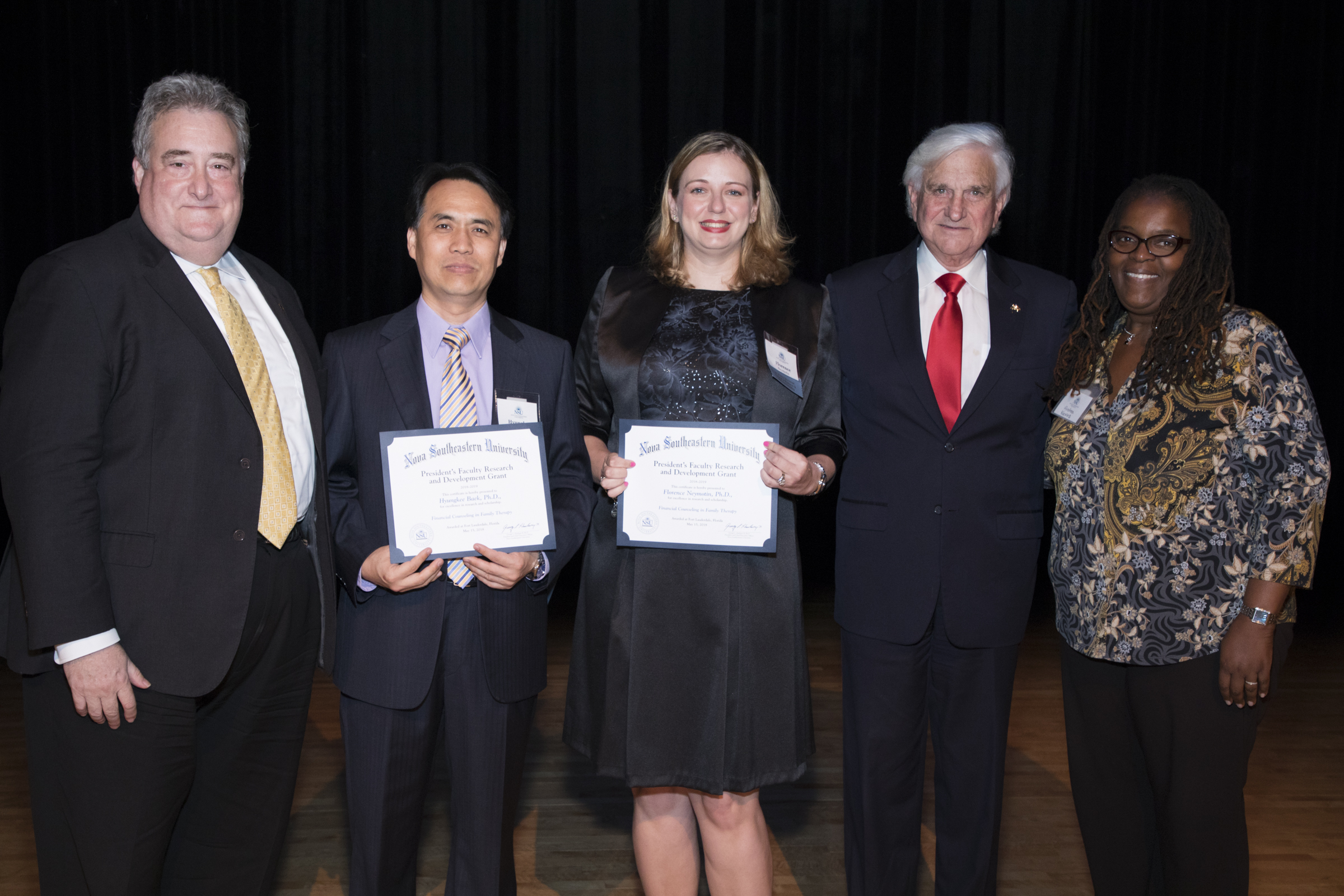Financial Counseling in Family Therapy
Grant Winners
- Hyungkee Baek, Ph.D. – H. Wayne Huizenga College of Business and Entrepreneurship
- Florence Neymotin, Ph.D. – H. Wayne Huizenga College of Business and Entrepreneurship
- Ronald J. Chenail, Ph.D. – College of Arts, Humanities and Social Sciences
- Ron Osborne-Williams, MS – College of Arts, Humanities and Social Sciences
Deans
- J. Preston Jones, D.B.A. – H. Wayne Huizenga College of Business and Entrepreneurship
- Honggang Yang, Ph.D. – College of Arts, Humanities and Social Sciences
Abstract

Money affects relational quality and vice versa. In the newly developing area of financial therapy, couples receive both relationship counseling as well as financial advice. It is anticipated that helping individuals to improve their finances will help them to bolster their relationship. Conversely, helping them to relate better to one another may allow them to weather financial storms and to solve financial problems in a joint fashion. This stream of research, however, is at a very early stage of development, with only a few pilot studies existing and even those having employed a very small and homogeneous set of couples in the samples.
The present analysis seeks to amend this gap in the literature and advance the state of knowledge by more clearly developing a collaborative effort between marriage and family therapy as well as financial planning and running a pilot study to refine and generalize results. The sample employed will use a randomized treatment-control approach and a diversity of couples—unlike the previous studies in the literature—and it will use a more systematic protocol structure to be refined and fine-tuned after the pilot testing is complete. The diversity of the population in South Florida also makes it well-suited to employing a local testing site for a study of this nature. In addition to an initial interview, the treatments and assessments of subjects will occur at multiple points in time and will be followed by at least two solicited post-treatment follow-up interviews.
Results will be analyzed employing simple tests for differences of means as well as more complex ANOVA, multiple regression, and Hierarchical Linear Modeling structures. Treatment protocols will allow for variation in the treatment environment and subsequent analysis of relatively preferred environments. Results will also be easier to generalize to the population as a whole since they will be stratified over various facets of the population in question.
After the completion of this study, it is anticipated that external grants will be sought and a larger study will be implemented in order to ultimately consider developing a program at NSU that would be pioneering in treating both financial and family counseling issues in a dual-pronged, unified fashion. This would increase visibility for NSU and make them a leader in the area of financial therapy research. To this end, the present proposal seeks the funding to conduct the initial protocol development, pilot study, and result dissemination and protocol refinement that would be necessary prior to this later development of the larger study and financial therapy program.